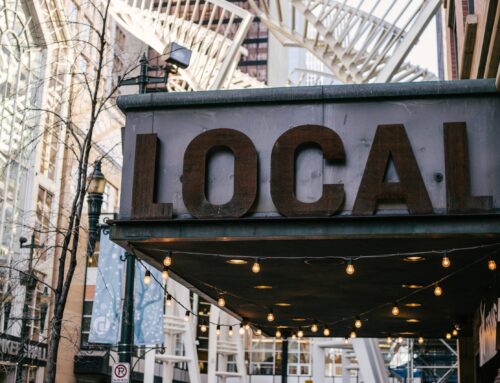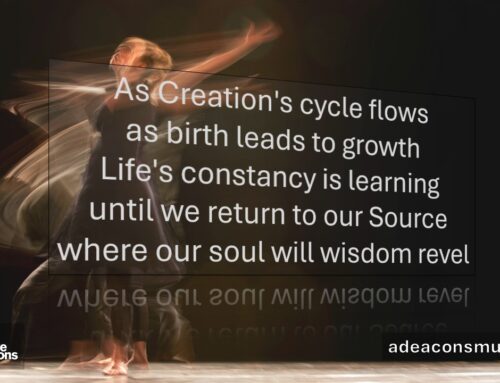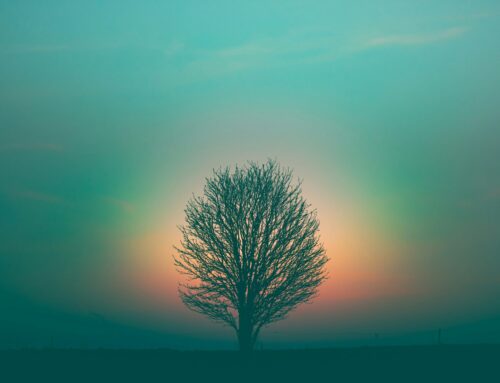Recently, during one of my tweeting moments for UCiM, I wrote the following UCiM-ism:
The catalyst for this recent blog occurred during my run along the North Saskatchewan River in Edmonton, AB, while I was attending my first Doctoral Seminar at St. Stephen’s College. The run was early in the morning and the sun was kissing eastern clouds painting everything in rosy red crimson that Homer was so found of citing in the Odyssey.
On that path, as I headed back toward my Edmonton abode, there – to my left and right – were Magpies calling to one another, taking notes as I lumbered by and, contrary to what others think is possible in the river valley, I saw a coyote. It watched my advance and subsequent retreat not so much with fright, but with a feigned curiosity. In this moment of Canadian Geese migrating, ducks quacking their quack, and others passing by who wandered into the day upon that trail for various unspoken reasons, I was keenly aware of beauty.
I possess many gifts from my maternal side and one of them happens to be a family-tree. In that meandering weave, which apparently winds its way back to the 4th Century in Syria, of unspoken stories – joys and grief, celebration and suffering – my family seems to have often (if not always) been rooted in an urban context. That did not change when my Great-Grandfather, fleeing European expansion and rising Christian intolerance from the Ottoman Empire, arrived in Montreal and continued this connexion that informs my family’s mythology.
Knowing this storied part of my family of origin, I am also aware that the enamour of the rural remains a constant counter-point in a world in which global climate change is occurring. This enamour – this romanticising – however, is not new. The Roman Poet, Virgil, is just one ancient person who waxed about the idyllic pastoral lifestyle one experienced when removed from the confines of the city. This tendency to polarise, in my experience, seems to have only intensified as argumentation from those who are ‘green’ and those who represent ‘authority,’ arrive at a place where tension and, implicitly, the potential for violence is rationalised.
In Canada, there is now pending legislation that will make it illegal for activists to wear masks. As well, environmental NGOs, which confront government policy or multi-nationals, may very well face a loss of their charitable status. And though I have some intellectual sympathy for the economic interests that governments attempt to balance for everyone and – at the same time – appreciate the intense passion of those who desire to care for Creation, the ever-increasing rhetoric has me greatly concerned. I am worried that as long as everyone is talking AT each other, lives may become literally caught in situations that will lead to an escalation from which we might be unable to disentangle.
I know I am predisposed to the idyllic or imagined potential that occurs when our creativity is allowed to spread unfettered. I do not think this polarity, binary, comparison is either helpful or – ultimately – accurate. All of God’s Creation is sacred. Not this place or that one. The problem, or such it seems to me, is that we parse, debate, find our individual passion and fail to realise that this entire sphere, planet, is an ecosystem without which we literally cannot live. Quality of life is certainly important and governments, at their best, endeavour to ensure that all have access to the tools and opportunity to better life. The voices of challenge and parable serve to create opportunity to reflect on whether current practice is best or whether there might be another way. But without a mantra of seeking balance in this grey conundrum of human ambiguity there always remains the temptation to know you’re right and I’m wrong








Your reflections are most welcome!